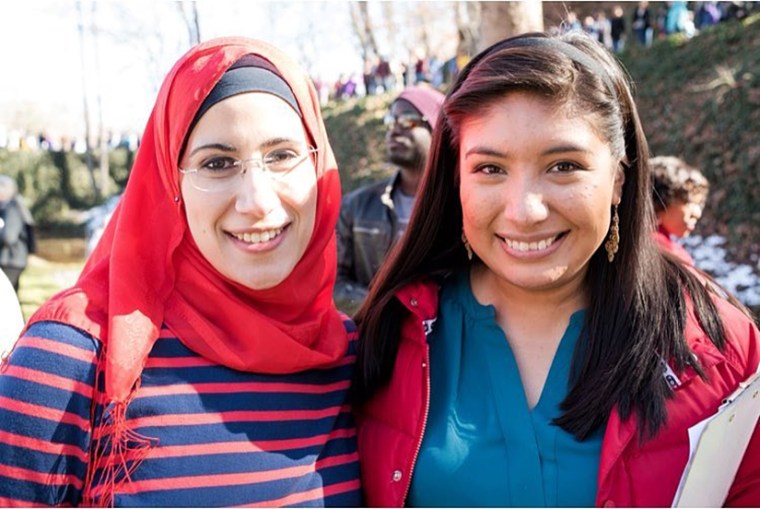Many conversations surrounding this year’s Women’s March have focus on anti-Semitism allegations against two Women’s March Inc. leaders as some prominent civil and women’s rights groups decided to not partner with the organization for the big event in Washington.
But for young Latinas like Sarai Bautista Perez, 28, the Women’s March is an opportunity motivate people to politically engage beyond the rally.
“We don’t want people to just attend the rally and then go home and not do anything,” Bautista Perez told NBC News.

Bautista is part of March On, a grassroots coalition of Women’s March organizers that works to make sure people are organized, informed and ready to vote in the 2020 elections to bring new progressive leaders to Congress. And as part of the coalition, she joined a committee of six women to organize the Women’s March taking place in her town of Greenville in South Carolina.
Even though Bautista has attended previous Women’s Marches, this is the first time she plans one in her community since she became more involved in political activism in the wake of Donald Trump’s 2016 presidential win.
“Having DACA and seeing my life completely turned around [for the better],” said Bautista Perez, who explained that DACA allows undocumented immigrants like herself to apply to work and study in the U.S. without fear of deportation, “made see how important it was to be in contact with legislators and Congress.”
The long-term fate of the Deferred Action for Childhood Arrivals program, better known as DACA, was put into question after the White House and Congress failed to provide and pass immigration reform back in March 5, 2018. At the time, two federal judges blocked the Trump administration from rescinding the program and the U.S. Supreme Court refused to hear the government’s appeal, which expanded DACA recipients’ time frame to garner congressional support for a permanent solution.
As of Friday, it appears likely that the U.S. Supreme Court will not take up the issue during its current term, which would require the government to keep the program going for at least 10 more months.
“These legislative battles take a long time and it can be exhausting,” said Bautista Perez.
Dreamers like herself consider youth political mobilization and Hispanic voting participation crucial to their livelihoods, since DACA recipients are not allowed to vote and their fate hangs in the hands of lawmakers they can’t elect.
South Carolina, Bautista Perez’s home state, saw a 30.1 percent increase in the amount of Hispanic eligible voters between 2014 and 2017, according to the Pew Research Center.
“I know that the goal for many organizations in South Carolina is how can we grow connected and together” said Bautista Perez referring to her state’s growing Hispanic electorate.
The trend among youth voters nationwide is also promising.
During the 2018 midterm elections, young adults voted in higher numbers than any other midterm in the past 25 years, according to a preliminary analysis from the Center for Information and Research on Civic Learning and Engagement (CIRCLE), which studies young Americans’ political engagement.
They estimated that 31 percent of eligible young voters ages 18 to 29 turned out to vote this year, better than the past seven midterms. It's particularly noticeable considering that 2014 had the lowest youth turnout rate.
“It feels very hopeful,” said Bautista Perez.
Her advice to young people and Latinos feeling an urge to get more politically involved beyond the Women’s March, ahead of the 2020 elections, is to start small and focus on specific issues “that really speak to them” individually.
That’s why Bautista made sure to include speakers at the South Carolina Women’s March that work on an array of issues, from LGBTQ and women’s rights to religious freedom and immigration, to give attendees a chance to connect with diverse local organizers.
“Focus on your own community first… and always see the issues with your heart,” she said.
FOLLOW NBC LATINO ON FACEBOOK, TWITTER AND INSTAGRAM.


